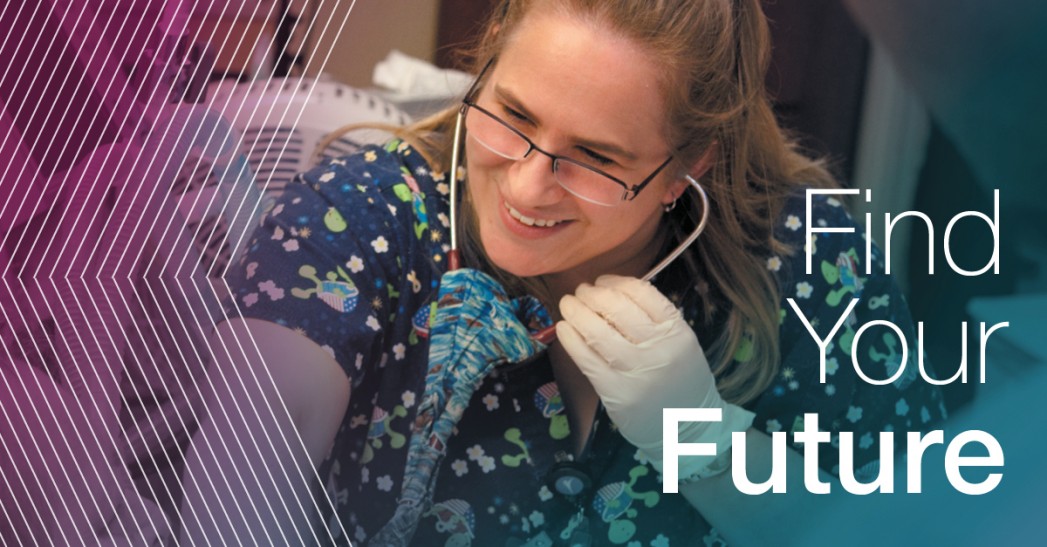With the onset of COVID-19, the need for healthcare professionals remains greater than ever. At Kindred Healthcare, they continue to be focused on providing excellent care for patients and families as well as one another.
Kindred Healthcare has two Louisville hospitals — the 123-bed Kindred Hospital Louisville and the 30-bed Kindred Hospital Louisville at Jewish Hospital (the unit is part of University of Louisville/Jewish Hospital in downtown Louisville).
Tina Ethington, Market Chief Clinical Officer and Chief Nursing Officer at Kindred Hospital Louisville, says a lot of the need for hiring at Kindred’s two Louisville hospitals is backfilling positions for their CNAs and Licensed Professional Nurses (LPNs) who have gone back to school to attain degrees as Registered Nurses and assumed those positions at the hospitals.
“We do a really good job of encouraging our nurses to become RNs and supporting them along the way,” said Ethington.
Still, competition for nurses in the Louisville area can be pretty fierce, with thousands of positions needed at the many short-term acute care hospitals in the region, as well as local rehabilitation services, nursing homes, assisted living facilities and home health providers. It’s not uncommon for some hospitals, including Kindred’s, to offer sign-on bonuses to job candidates and referral bonuses to existing staff.
The competitive advantage for Kindred’s hospitals, according to Ethington — who started in nursing 25 years ago — starts with the broad, hands-on experience they will receive compared to larger, short-term hospitals and other settings.
“The thing about nursing is that there are basic technical skills that you have to learn,” said Ethington. “Without getting experience with patients who need certain things, you can’t really get those skills. In a transitional care (long-term acute care) hospital, you get critical care experience throughout the whole building because we take ventilator patients throughout the building. You get a lot more technical, hands-on skills with the patients that come through here with tracheotomy care, gastrointestinal tubes, ventilators, wounds and so much more.
“Nurses who start out here get some of the best learning and hands-on clinical skills,” she added. “We also hear a lot from the student groups that do rotations here that they love coming here because they get to see so much and participate in so many more skills than they experience in other hospitals.”
Critical care opportunities abound at transitional care hospitals because of the type of patients they treat — the medically complex, the highest 2% in terms of acuity (level of illness), the “sickest of the sick.” It’s challenging work, according to Ethington, work that requires more than just a good skillset.
“You have to have the right attitude,” she said. “You have to be willing to learn and you have to be passionate about taking care of people. I always try to tell people who are coming to work here that it can be hard to work at a transitional care hospital because the patients and families are stressed. They’ve already been in a hospital for a long period of time, and they didn’t get to go home. That means that their stay in a hospital setting had to be extended, it’s going to be much longer than the majority of the population. So, they are stressed.
“It takes a lot of compassion and personal skills to be able to help the family as well as the patient. We really look for good attitudes and a strong passion for caring. If you’ve already learned some technical skills that is great, if not, we’re happy to be a place of learning.”
In fact, Kindred’s hospitals offer a number of learning and development opportunities for its staff. Its “new grad” program offers recent nursing school graduates who sign a two-year retention agreement additional financial support through bonuses ($2,500 at six and 18 months) and hourly rate increases at designated milestones. Kindred’s Clinical Ladder Program offers a path for professional development that leads to progressively higher positions and pay. And its Nurse Leadership Program puts select nurses on the path to leadership positions that include nurse manager and chief clinical officer.
Ethington says the many opportunities and unique experiences and challenges of transitional care hospitals — coupled with the hospitals’ relatively small size compared to traditional hospitals — makes for a different, tighter-knit work environment.
“This is a great place to work,” she said. “It’s a great company to work for and it’s a great hospital. The staff members here are very family-oriented and they take care of each other. It’s big enough to get a lot of experience but it’s small enough to still have that family feel, that you really know your co-workers and get to have a strong relationship with the people you work with.”
To learn more about Kindred’s hospitals in Louisville, visit www.kindredlouisville.com and www.khlouisville-jewish.com. To learn more about job opportunities at the hospitals, visit the “Careers” tab at either site.
Cover photo courtesy of Kindred.


